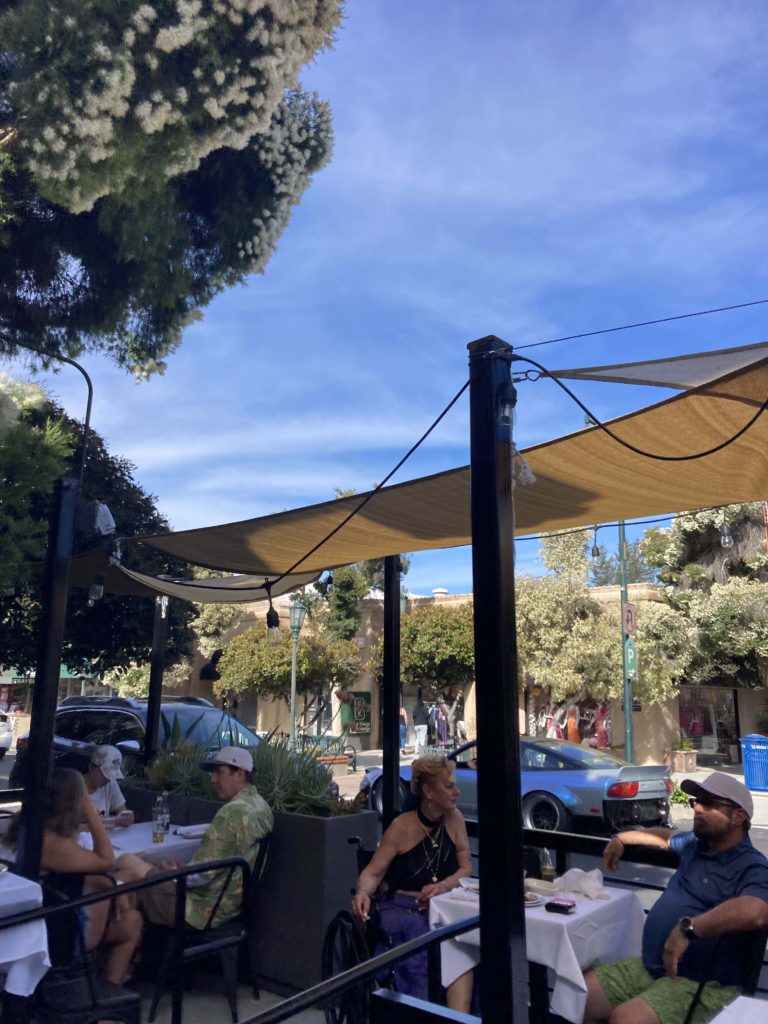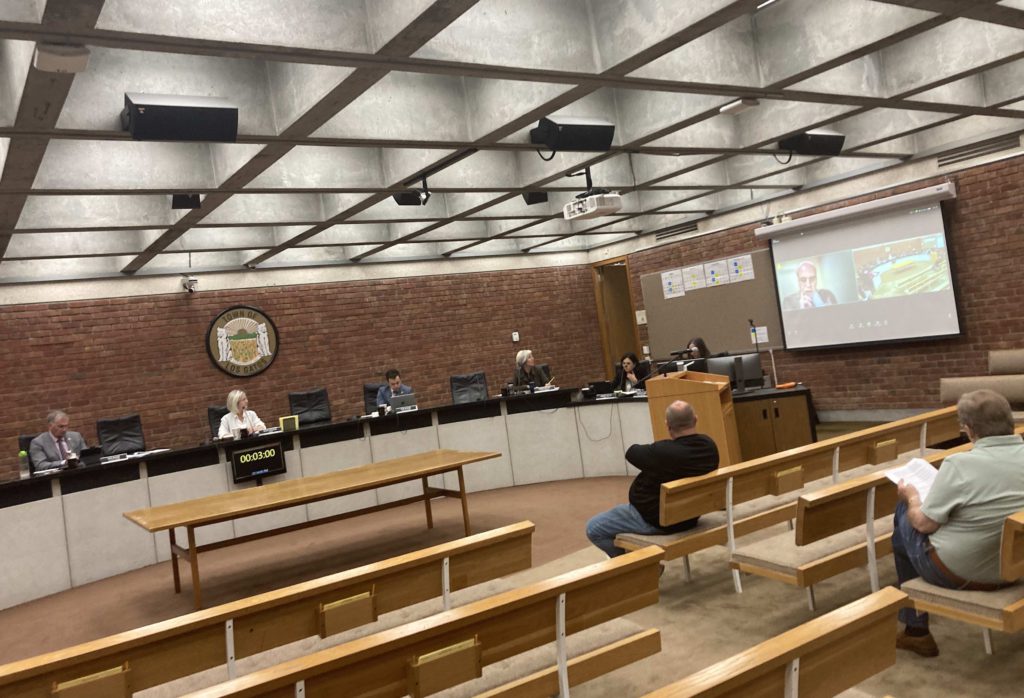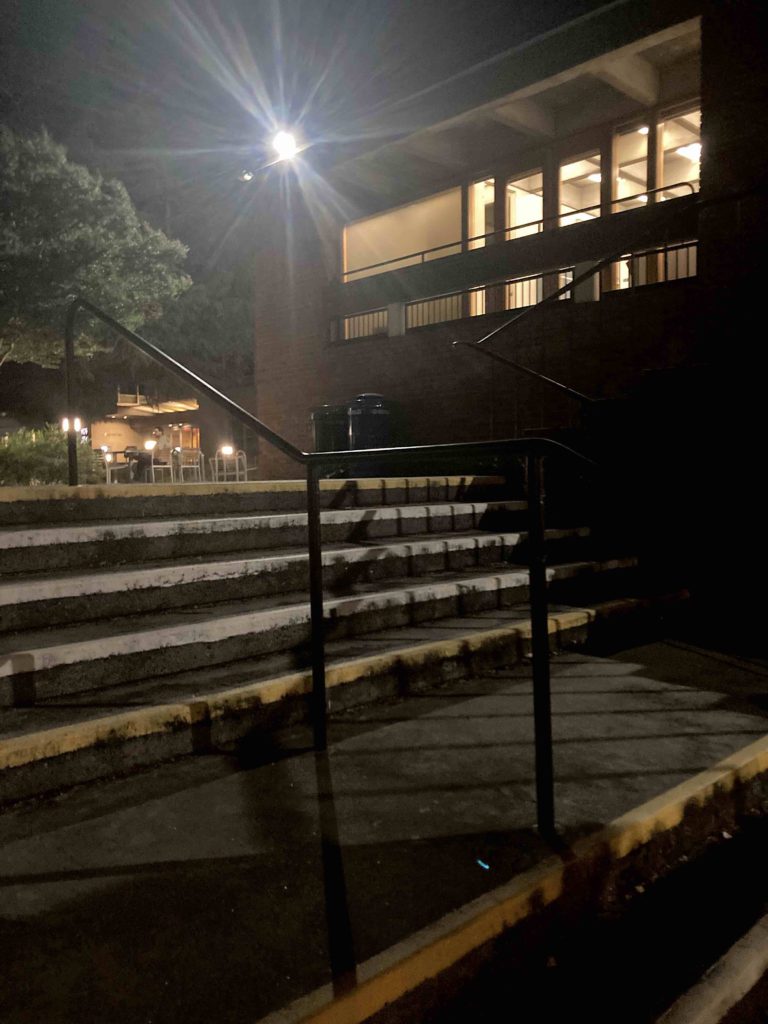Last week, Council voted to approve a budget with $78 million in spending and $76 million in revenue for the coming year.
To make up the difference, Los Gatos is relying on more than a million of one-time General Fund Reserve dollars.
But while the community fervor around the Housing Element approval, which unfolded minutes earlier at the June 4 meeting, was so intense Mayor Mary Badame had to continually chastise attendees for clapping, not a single member of the audience commented on the budget during the public hearing.

Badame made the motion to approve the 2024/25 Operating Budget and five-year Capital Improvement Program; Councilmember Rob Moore seconded.
Vice Mayor Matthew Hudes asked about the Finance Commission’s discussion about estimating salary costs that have yet to be approved.
He wondered if, in the future, perhaps the budget should be decided after contract negotiations are concluded, and if it might not make more sense to use a range of costs, instead of a specific amount.
“Are those two possible solutions?” he asked.
Town Manager Laurel Prevetti thanked him for “thinking creatively of how we can address the uncertainties. We are currently in negotiation with two of our bargaining units. We typically start negotiations early. It is unpredictable in terms of when they finish. Prevetti explained the town is “very fortunate to have positive labor relations.”
“I don’t think the Council needs to be too worried,” Prevetti said. “The process allows for adjustments.”
The budget features a $1 million transfer from the Education Realignment General Fund Risk Reserve to the General Fund Pension/OPEB Reserve.
On May 21, Council directed staff to find a way to add a two-day-a-week position focused on boosting senior services, though no money has been identified to pay for the employee yet.
Council was also asked to make several revenue and expenditure adjustments to recognize things that have changed since February’s mid-year review.
And staff requested more money to cover costs related to workers compensation-type leaves.

Crucially, the 2023/24 fiscal plan assumed a 4.6% employment vacancy savings.
“Based on the most recent estimates, certain individual Departments/Programs that are fully staffed will not realize the 4.6% budgeted salary savings,” staff said in a report. “Staff is requesting that Council approve salary and expenditure budget adjustments up to the amount of the projected 4.6% salary savings factor for individual Programs as needed based on year-end actual expenditures.”

The budget includes $33,000 in extra money this year for the Los Gatos Chamber of Commerce, $100,000 in additional one-time funds for community grants, $25,000 for nutrition support, a $100,000 cash injection for the New Museum Los Gatos History Project and $25,000 in rental assistance on a one-time basis, among other items.
Much of the new spending was made possible by Los Gatos’ swift action to save its dining establishments during the pandemic.
The community has long been a hub for diners, drawing in foodies from across Silicon Valley—and around the Bay Area.
During the pandemic, Los Gatos became a model town, as it promoted an ambitious parklet program which allowed restaurants to stay open with attractive outdoor dining areas, while other communities saw shoddy patios and barely transformed parking lots proliferate.
The Town rolled-out its “semi-permanent parklet” initiative, with a partially funded comprehensive downtown revitalization effort floating somewhere in the distance; however, the program was so successful no one is talking about another urban-design overhaul anymore.
That’s what allowed Council to withdraw hundreds of thousands of dollars to put toward a series of other priorities, such as covering rent during a one-off emergency for a limited number of residents.
Councilmember Maria Ristow said the budget is a plan that can be adjusted, as necessary.
“And like any plan,” she said, “you know, sometimes it has to pivot.”
Unlike the Housing Element, which was adopted by a split 3-2 vote, the budget—even with its increases to social services and the arts—passed unanimously.










